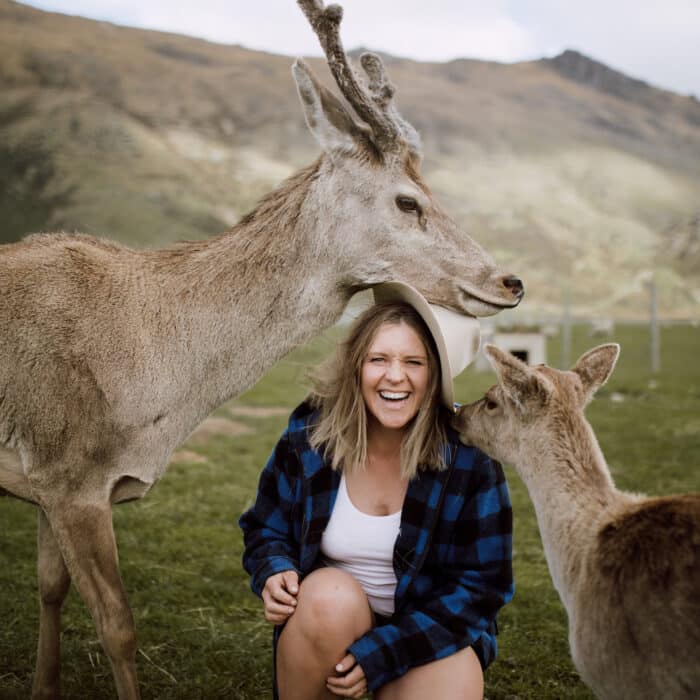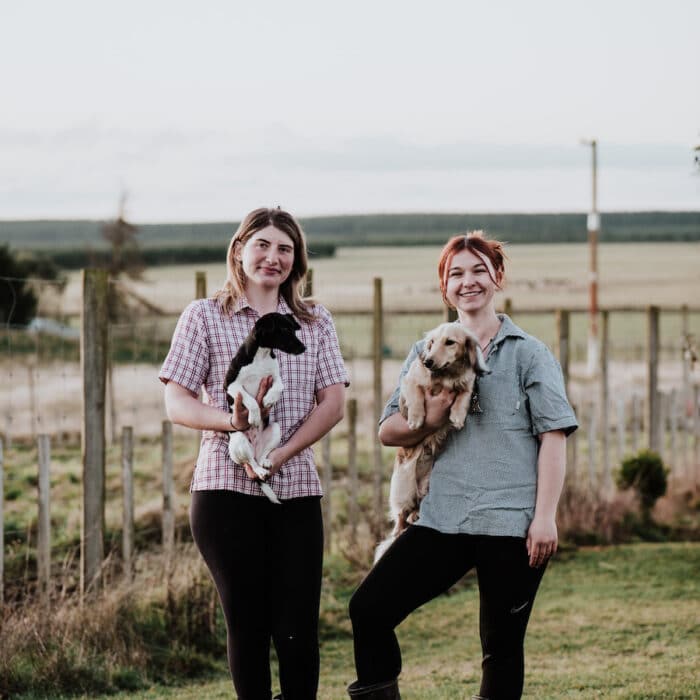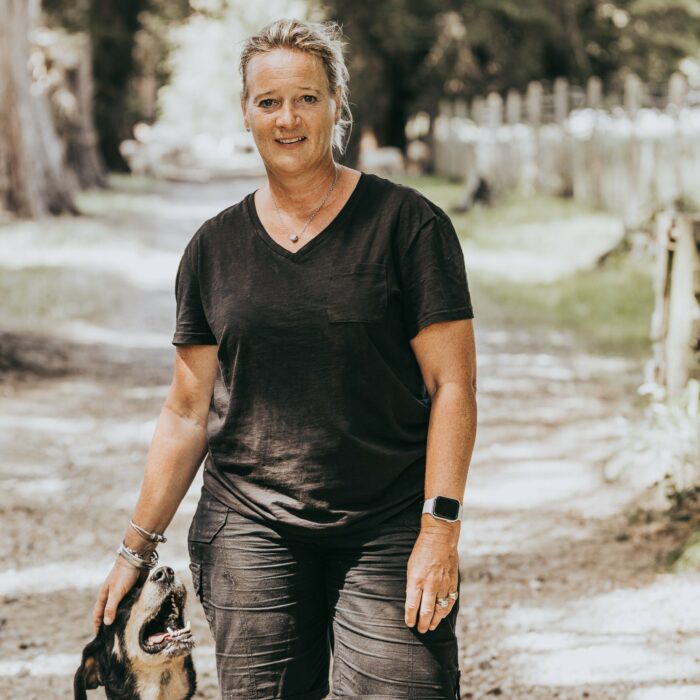
Tell us a little bit about yourself. I grew up just out of Amberley, on a rural property with a big, wild garden. My mum is a horticulturalist herself; when I was a baby she ran a nursery – the sort for young plants, not young humans – and while she was potting up or doing things in the garden, I’d always be nearby in the baby carrier. In primary school, I started designing and actually reworking our garden at home. I’d even get plants from my nana’s garden to spread around at home. I loved “my” garden so much – and still do!
What draws you to gardening? Gardening is very healing. For many people, myself included, it’s a safe and therapeutic space. It’s hard not to feel good when you’re outside, breathing in fresh air, connecting with the soil. It releases serotonin and endorphins, those hormones that promote mental well-being, so actually, gardening literally makes you feel good! You’re always making progress, too. Weeding, picking flowers, harvesting vegetables, even collecting worm wee – what you give is what you get. It’s a wholesome, rewarding feeling to mindfully do these tasks that show care for something else.
Did this fascination inspire you to pursue it for study? I wanted to be a landscape architect for a long time. I also loved biology at school. Watching a seed germinate is one of my favourite things. So, I decided to study agricultural science at university as it seemed like a good fit with many of the things I love and my rural background. Around the time I graduated, the rural sector was under a lot of heat so I went to grad school and completed a teaching diploma. For the next three years I taught agriscience and agribusiness at a co-ed secondary school. It was a great challenge, but while I was teaching I realised I was craving a more creative outlet. A friend of mine with a gift shop asked if I could have a go at creating a kind of grow kit for her. She’d seen something similar in Australia but was unable to get it over here. Two weeks later, Flora Grow and its first product – the Flora Grow Kit – were born. That was four years ago.
And the business has clearly grown since then! In the beginning I was doing everything, making up kit by kit, from my bedroom at my nana’s house, whom I was living with. I did that for almost two years, alongside my teaching job. A few big life events, like losing my dad suddenly in a jet boat accident, made me realise that life is pretty short and that I was ready to mix it up – or rather, dedicate more of my time to Flora Grow. Gardening became my safe healing space. Fast forward another couple of years to today, we offer bespoke garden services and workshops, make ten different grow kits, and stock over 150 products. Right from the start I was mindful of creating a name that wasn’t limiting, so there would always be the opportunity to expand and grow the business.
Why do you think many people are so hesitant to give gardening a go? The biggest thing I see is that people are afraid to start because they’re afraid of failure. With gardening, as with many other parts of life, you will experience failure, and that’s okay! You learn through trial and error, through successes and failures, but the most important thing is giving it a go. Experiencing success after failure is even sweeter because you’ve learned something that you otherwise may not have been exposed to. You also do not have to grow from seed to be a gardener. Buy a punnet of seedlings – it costs the same as a cup of coffee – and plug it in the ground. It doesn’t mean you’re not a green thumb, it’s about figuring out what works for you and what will hold your interest.
And there must be common misconceptions. One is that nothing grows over winter. That couldn’t be further from the truth – things like coriander, rocket, lettuce, broccoli, carrots, onions and spinach don’t go to seed in the colder temperatures. At the same time, what’s applicable to my region may not work for you. Your soil might even be different to that of your neighbour!
How do you measure Flora Grow’s success? I truly think that if you’re passionate about something, it’s contagious. When I get a photo or video from somebody who’s grown something, or a message thanking me for a tip I’ve shared, I see my passion wearing off on them. It’s the best feeling. Whether they’d previously attempted a garden of any scale or it’s their first potted herb, they’re now on their own gardening journey. That’s success to me.
This story appeared in our Kōanga Spring 2023 Edition.
Related Stories
“I had to innovate or die.”
Laura Koot, 36, founded agritourism business Real Country to share a taste of “real, rural New Zealand” with her guests.
Cecelia & Jessica
Jessica and Cecelia are best friends and bull beef finishing specialists on Rangitaiki Station, a Pāmu farm, about fifty kilometres southeast of Taupō.
Jane Tylee
This story is the fourth in a series where we share, in their own words, the stories of ten women who call Tararua home.

Out Now
Seventeenth Edition
Our beautiful Ngahuru Autumn 2024 Edition is out now!



